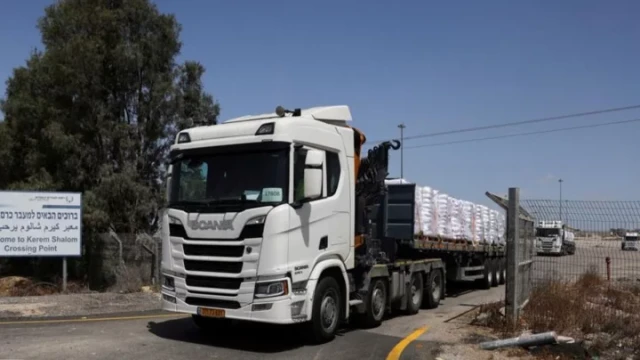Gaza/Jerusalem, May 19 (V7N) – After nearly three months of a strict blockade, Israel has agreed to allow limited humanitarian aid into the Gaza Strip, though no specific timeline or delivery mechanism has been announced. The decision comes amid mounting international pressure and growing concern over a looming famine in the war-torn enclave.
Israeli Prime Minister Benjamin Netanyahu confirmed the move on Monday, stating that famine conditions could threaten ongoing military operations. He said that only basic food supplies would be permitted and emphasized that the decision was made reluctantly, under intense pressure from some of Israel’s closest allies.
“Our best friends in the world are telling us the images of starving civilians are damaging our international support,” Netanyahu told members of his hardline government, some of whom strongly oppose the entry of aid over fears it might benefit Hamas. “We have to address this issue to win the war in Gaza,” he said.
The United States and other Western nations have repeatedly urged Israel to ease restrictions to allow humanitarian relief for Gaza’s 2.3 million residents, many of whom are now facing extreme food shortages and displacement.
Meanwhile, Netanyahu has reaffirmed his intention to take full control of Gaza, reiterating Israel’s war goal to destroy Hamas and rescue the 58 hostages believed to still be held in the territory.
In a video message, Netanyahu said: “There is a fierce battle. We will take control of all parts of Gaza.” The Israeli army launched a new military operation on Friday and on Monday issued evacuation orders for residents in Khan Yunis, signaling preparations for a major assault in southern Gaza.
The Israeli military described the upcoming offensive as unprecedented, warning that Hamas strongholds in Khan Yunis and elsewhere will be dismantled with full force.
Despite the limited aid concession, humanitarian agencies remain concerned about the lack of safe delivery routes, logistical planning, and guarantees that medical and fuel supplies—also desperately needed—will follow.
END/MSS/AJ





























Comment: